This blog was reviewed by lactation consultant Olivia Hinge on 03/05/24
If your baby is sick, breastfeeding is one of the best things you can do to help your little one on their road to recovery (if you can – breastfeeding doesn’t work for everyone, and that’s okay). WHO guidelines (1) recommend that all babies are exclusively breastfed for 6 months. You can of course continue breastfeeding for much longer if you can, and want to! Babies will benefit from the nutrients in breastmilk, especially if they’re sick.
Breast milk has many fantastic benefits, from its nutritionally-complete composition (2) (which helps to form the baby’s microbiome for life) to the intimate bonding experience provided by every feeding session. Its most remarkable property, though, is often overlooked — breast milk can actually shield your baby (3) from illnesses and infections.
In fact, your breast milk is so responsive to your baby’s needs, not only does the amount produced increase and decrease (4) in response to your baby’s hunger and growth spurts, but it also reacts very quickly to your baby’s short-term needs if either of you falls sick.
Should I breastfeed my sick baby?
In short, yes! Breast milk contains antibacterial and antiviral properties that can help reduce (5) the risk of your baby getting colds, flu, ear and respiratory infections, sickness, and diarrhea.
Incredibly, if your baby falls ill, the composition of your breast milk adapts (6). When you’re exposed to an infection, your body starts to produce antibodies to fight it. Handily, these bug-beating proteins are then passed on to your baby through your breast milk. The levels of leukocytes (immunity-boosting cells) also increase when your baby is sick, because their saliva on your nipple sends a message through your body to produce more illness-fighting cells. Clever, huh?
The bottom line? Breastfeeding a sick baby can be incredibly beneficial, and even if you’re also feeling sick, your little one stands to benefit from your immunity-boosting milk.
What to eat when breastfeeding a sick baby
You don’t need to change your diet if you or your baby becomes ill, but certain foods are full of nutrients and may help you feel a little better. Here’s some healthy suggestions if you’re feeling a little under the weather.
Fruits and vegetables: These are rich in vitamins and minerals that can help boost your overall health. Try to eat fruits and vegetables of different colors every day — this way you’ll get a wide variety of different immunity-boosting nutrients.
Hydrating fluids: Drink plenty of water – dehydration will make you feel worse.
Garlic and ginger: Garlic and ginger are believed to have medicinal properties that might help boost the immune system – they won’t supercharge your breast milk, but they might make you feel a little perkier.
The flavor of your breast milk will change based on what you’ve eaten recently (7), so don’t be afraid to mix things up — doing so may make the transition to solid foods easier when the time comes.
Remember — it's important to talk to a healthcare provider or a lactation consultant before taking any supplements or eating any special foods while breastfeeding.
What if my baby is too sick to breastfeed properly?
If your baby is too unwell to breastfeed, consult a pediatrician or lactation specialist for appropriate care and guidance. It's also important to ensure that your baby is getting adequate rest and receiving any necessary medical treatment to recover from the illness.
Having some breast milk stored and ready to go in cases of emergency might be reassuring for some parents. This way, you can feed your baby from a bottle, cup, or even a syringe if feeding is particularly difficult.
If you’re considering building up a stockpile of breast milk, try pumping after you’ve breastfed to collect some extra milk. Thankfully, an electric breast pump can simplify the process of building up a milk supply. The Elvie Stride and Elvie Pump are wearable, wireless, and whisper-quiet, allowing you to pump hands-free wherever, whenever.
How does breast milk change when your baby is sick?
One of the most fascinating features of breast milk is that not only does it change when the mother gets unwell, but it can also work in the other direction. This means when your baby is suffering from an infection, the breast milk can change its composition to respond to the baby’s needs and tailor its properties to help fight the microbes.
When your baby latches to the breast and begins feeding, this creates a miniature vacuum seal. Researchers suggest (6) that the way your body responds to your baby's breastfeeding may be due to the transfer of saliva from the baby's mouth to the breast, which mixes with the milk inside. This is referred to as "retrograde milk flow".
One theory (8) suggests that as the milk is ejected, the pressure in the milk duct increases, the ducts dilate, and breast milk flows toward the nipple. Once the pressure in these ducts decreases, the milk ducts will shrink down, causing the milk to flow backward (likely together with saliva from the baby's mouth).
It’s thought that during this process, microorganisms from your baby’s saliva may be transferred back into the breast, stimulating an infection-fighting response in the milk. The mammary glands are filled with cells from your immune system to help to fight infection. These cells can then pass across to your baby (9) and help them mount a response to the infection they’re fighting. Put simply, your breast milk is the ultimate superfood.
If you’re pumping rather than breastfeeding, you might be wondering if this mouth-to-nipple microbe exchange can still happen, if your baby’s mouth isn’t in direct contact with your nipple. The good news is that your milk is still full of important antibodies. The variety of bacteria (10) in your milk will be different as the baby’s saliva isn’t mixing with it, but you’ll still be exposed to your baby’s germs in other ways – they still sneeze, cough or puke on you, right? Yes, it’s one of the less glamorous elements of parenting, but when you ingest those pathogens your body responds with antibodies.
Your breast milk is incredibly dynamic and responsive, so don’t be surprised if you notice changes in its color and consistency at different times. These changes could vary depending on:
The time since the last feed – depending on when you last fed, your milk might be more or less fatty. Emptier breasts mean fattier milk.
The time of day – the fat content of the milk may be higher in the late afternoon or evening, when your breasts produce lower volumes of milk.
Baby’s weight and growth spurts – your baby may feed more frequently at times of growth, which can change the nutrient compositions depending on what is required.
Can I breastfeed when I’m sick?
It might not sound like the most appealing activity, but you should always try to continue with breastfeeding through an illness. When you’re sick, your body produces powerful antibodies which help to fight off the infection. These antibodies are transferred into your breast milk, allowing your baby to benefit from their immune-boosting effects.
Don’t just take our word for it — studies show (11) that breastfed babies have a decreased likelihood of ear infections, diarrhea, respiratory infections, and meningitis, and improved protection against allergies, asthma, diabetes, obesity, and sudden infant death syndrome (SIDS).
How does breastfeeding help a sick baby?
Your milk can help protect your baby from infections as it passes your antibodies to your baby. As we’ve explained, it also adapts to your baby’s needs by producing the illness-fighting cells needed in response to their saliva. Your immunity is passed to your baby through your milk, even if you’re pumping rather than feeding directly.
Breast milk can reduce the likelihood of your baby getting common infections in infancy such as colds and flu-like illnesses, ear and respiratory infections.
So, when you get unwell, it’s not only safe to continue to breastfeed, but you will likely pass on your antibodies to your baby and protect them from catching the same illness.
The medical information in this article is provided as an information resource only and is not to be used or relied on for any diagnostic or treatment purposes. Please consult your doctor for guidance about a specific medical condition.
References
Breastfeeding, World Health Organization
Human Milk Composition: Nutrients and Bioactive Factors, Olivia Ballard, JD, PhD (candidate) and Ardythe L. Morrow, PhD, MSc, Pediatr Clin North Am., Feb 2014
The Antiviral Properties of Human Milk: A Multitude of Defence Tools from Mother Nature, Daniela Morniroli, Alessandra Consales, Beatrice Letizia Crippa, Giulia Vizzari, Federica Ceroni, Jacopo Cerasani, Lorenzo Colombo, Fabio Mosca, and Maria Lorella Giannì, Nutrients., Feb 2021
Breastfeeding: the first few days, NHS, February 2023
Benefits of Breastfeeding, Cleveland Clinic, July 2023
How Your Breastmilk Changes When Your Baby Is Sick, Wendy Wisner, Verywell Health, July 2022
5 Breastfeeding Diet Myths, Johns Hopkins Medicine
Maternal and infant infections stimulate a rapid leukocyte response in breastmilk, Foteini Hassiotou, Anna R Hepworth, Philipp Metzger, Ching Tat Lai, Naomi Trengove, Peter E Hartmann, Luis Filgueira, Journal of the Australian and New Zealand Society for Immunology, April 2013
Origins of human milk microbiota: new evidence and arising questions, Shirin Moossavi, Meghan B. Azad, Gut Microbes, May 2019
Composition and Variation of the Human Milk Microbiota Are Influenced by Maternal and Early-Life Factors, Shirin Moossavi, Shadi Sepehri, Bianca Robertson, Lars Bode, Sue Goruk, Catherine J. Field, Lisa M. Lix, Russell J. de Souza, Allan B. Becker, Piushkumar J. Mandhane, Stuart E. Turvey, Padmaja Subbarao, Theo J. Moraes, Diana L. Lefebvre, Malcolm R. Sears, Ehsan Khafipour, Meghan B. Azad, Cell Host & Microbe, February 2019
New insight into why breastfed babies have improved immune systems, University of Birmingham, Jan 2021

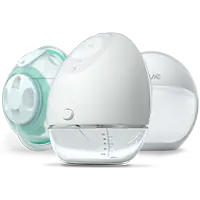
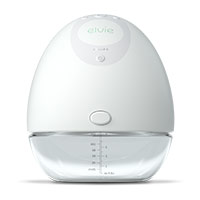
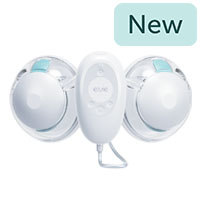
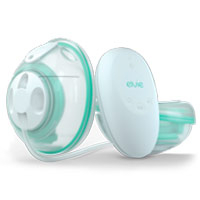
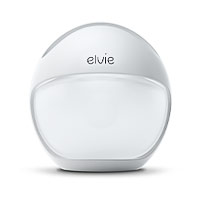
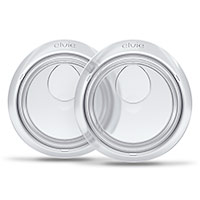
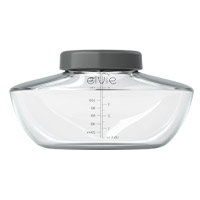
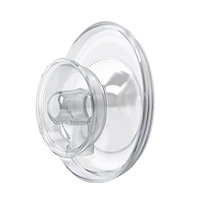

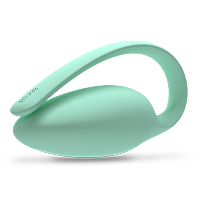
 9 minute read
9 minute read